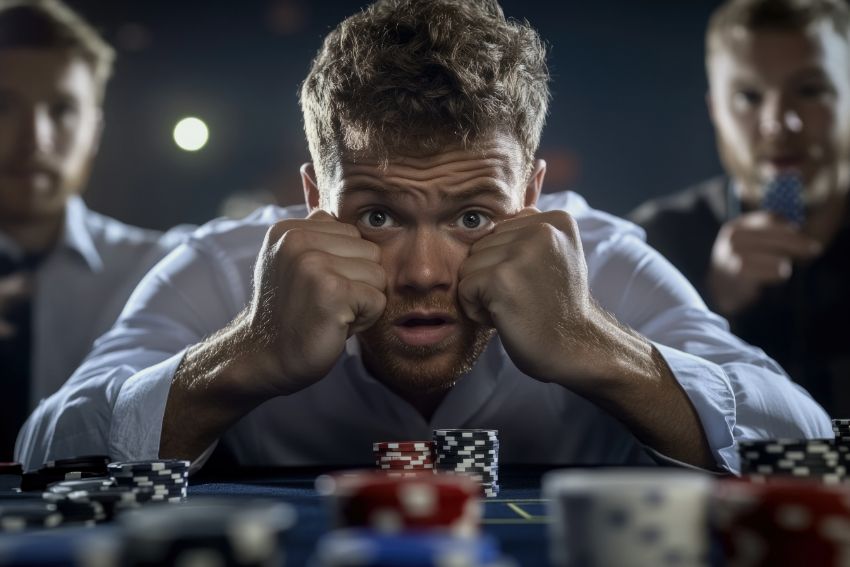Within the realm of poker, the mental aspect plays a crucial role in determining success or failure. To excel in this game, it is essential to grasp the psychology that underpins effective gameplay, encompassing a complex interplay of emotions, strategic thinking, and bluffing tactics.
Imagine yourself seated at a table surrounded by opponents of equal skill level. How does one navigate this scenario, maintaining composure, making calculated decisions, and ultimately outsmarting adversaries? The key lies in deploying psychological strategies that can confer a competitive advantage in the high-stakes environment of poker.
Understanding Emotions at the Table
At the poker table, emotions play a significant role in influencing decision-making and outcomes. It’s essential for players to be mindful of their emotions and manage them effectively to maintain focus and make rational choices during gameplay. Emotions such as anger, frustration, excitement, and fear can impair judgment and lead to costly errors.
Developing emotional intelligence is crucial to preventing these emotions from negatively impacting one’s performance. In poker, understanding and controlling emotions are as important as understanding the game itself. By cultivating emotional awareness and self-control, players can enhance their strategic abilities and navigate the psychological aspects of poker more successfully.
By the way, take a look at our article The Role of Table Image in Poker Strategy
Mastering the Art of Bluffing
Mastering the skill of bluffing is a strategic advantage in poker, as it involves deceiving opponents about the strength of your hand. Effective bluffing can influence opponents’ decisions in your favor. Success in bluffing relies on timing, consistency, and strategic decision-making.
Carefully select when to bluff based on factors such as your position, opponents’ tendencies, and the board’s composition. It’s crucial to vary your bluffing frequency to maintain unpredictability. Confidence and understanding opponents’ perceptions are essential for successful bluffing.
Practice bluffing in low-stakes games to refine your skills and discern when to bluff and when to fold. Developing proficiency in bluffing can enhance your poker performance significantly.
Developing a Strong Poker Face
Often underestimated by inexperienced players, cultivating a strong poker face is a critical component of honing one’s poker skills. The ability to conceal emotions and avoid giving away information through facial expressions is key in maintaining a competitive edge at the table.
To develop a reliable poker face, it’s essential to practice maintaining a neutral demeanor regardless of the hand or game situation. Utilizing a mirror can help identify and address any inadvertent tells, while focusing on controlled breathing and relaxed facial muscles can help prevent unintentional cues.
A consistent and inscrutable poker face not only keeps opponents guessing but also significantly enhances one’s strategic advantage during gameplay.
Enhancing Reading Skills of Opponents
Improving your ability to read opponents accurately is crucial in poker games to gain a competitive advantage. Observing their betting patterns, body language, and overall demeanor at the table is essential. Look for subtle cues such as changes in breathing, facial expressions, or hand movements that may indicate the strength or weakness of their hand.
It’s important to pay attention to how they respond to different situations and adjust your strategy accordingly. Keep in mind that each player is unique, so it’s important to be adaptable and tailor your approach to each opponent’s individual style.
Cultivating Mental Toughness
Developing mental toughness is an essential component of success in poker. In the competitive environment of poker, players often face challenges and setbacks. Building mental toughness enables individuals to navigate these obstacles with resilience and concentration.
To enhance your mental resilience in poker, it’s advisable to adopt a positive mindset, maintain composure, and confidence even when encountering difficulties. Practicing mindfulness can improve decision-making capabilities under pressure. Setting achievable goals and learning from both wins and losses are also crucial aspects of strengthening mental toughness.
It’s important to recognize that mental resilience is a skill that can be developed over time. By placing emphasis on mental strength, players can enhance their poker performance and increase their prospects for long-term success at the tables.
Conclusion
In summary, a solid understanding of the psychology of poker is crucial for achieving success in the game. Key elements such as managing emotions, honing bluffing skills, maintaining a composed poker face, sharpening opponent reading abilities, and building mental resilience are essential for gaining a competitive advantage. It is important to remain focused, resilient, and maintain a balanced mindset to navigate the various challenges of poker. Through consistent practice and commitment to improving mental game strategies, players can enhance their chances of success at the poker table.

